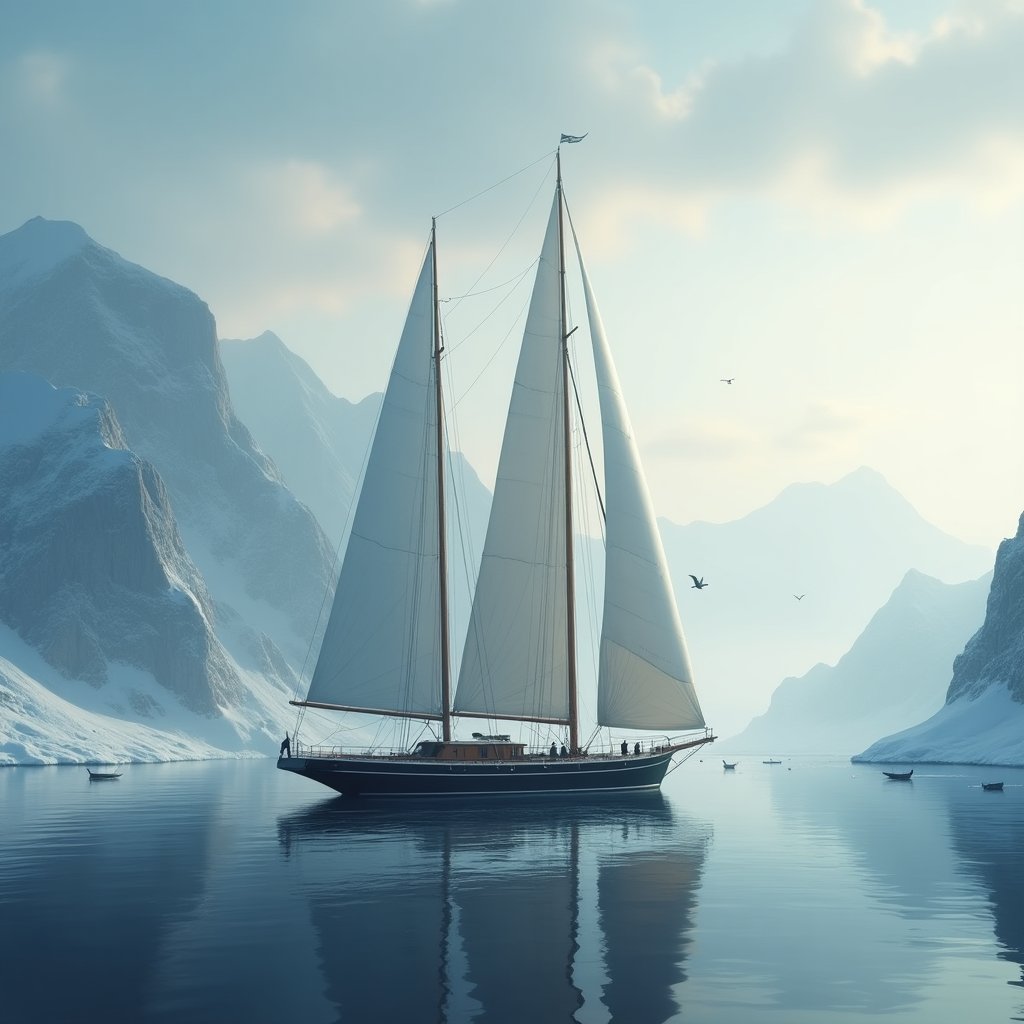In a world where the serene beauty of our seas is often overshadowed by the relentless march of smoke-belching giants, the maritime industry stands at a pivotal crossroad. In the eye-opening DW Documentary, we discover a tale of transformation and innovation against the tide of tradition, as the maritime industry faces its monstrous environmental footprint and strives for a cleaner horizon.
Ah, the high seas—ever promising breathtaking vistas and an intoxicating sense of freedom! But beware, dear explorers, for these waters aren't quite the idyllic escape they appear to be. They’re packed with cargo ships puffing out pollution like furious dragons cloaked in diesel vapors. Maritime trade, like a colossal orchestra playing the wrong tune, accounts for a staggering 2.9% of the planet's greenhouse gas emissions, rivaling aviation.
Yet amidst this industrial symphony, a revolution is quietly setting sail. The winds of change come not from corporate overlords, but from pioneers with dreams as vast as the oceans themselves. Our exploration begins with the Tres Hombres, a ship so delightfully anachronistic it lacks an engine and relies solely on the capricious whims of the wind. Captain Andreas Lakna, once a Greenpeace activist drifting toward a different horizon, spearheads this venture. His mission: prove that wind-powered trade isn't just naval nostalgia but a viable, sustainable shipping alternative.
A Nostalgic Voyage with a Fresh Wind of Change
Picture this: A trusty ol' schooner, once a product of World War II necessity, now rebirthed as a green trade vessel, challenging the norms of an oil-dependent industry. Maritime adventurer turned captain, Andreas, ferries French wine from sun-baked vineyards, fulfilling the eco-conscious dreams of vintners like Julie and Toby Banbridge. Their vineyard struggles with the plight of climate change, evidenced by drought-shrunk grapes and dwindling harvests. Julia waves her sustainable wand, ensuring her wines travel the right path—one that whispers rather than bellows.
This ain’t your typical booze cruise; it’s an inspiring jaunt back to a future where natural forces propel us forward. The Tres Hombres, with its cozy cargo hold brimming with thirty-five tons of valuable organic nectar, sails steadfastly north, headed for Copenhagen. It’s a voyage of hope in wooden shoes, where the sails unfurl dreams of emission-free seas.
Green Seas, Silent Whales, and Norway's Bold Vision
Northward, in the ethereal realms of Norway, ships adopt another facet of green navigation, honoring our marine giants—the whales. Here, the Brim Explorer ventures into hushed waters, having traded diesel roars for silent electric whispers. On board, 27-year-old marine biologist Karolina Weggener watches over these majestic creatures, whose gentle presence speaks of an unseen Arctic under threat.
The stark beauty of Norway's fjords hides a stark warning. The Arctic's speeding temperature rise sounds a clarion call for change, nudged into the collective conscience of a nation already leading the charge with electric-powered ferries sourced by 98% renewable energy. Such innovation is an irresistible siren song calling others to join their ranks on this windswept path to progress.
An Island of Innovation in an Ocean of Tradition
Back over in Germany, enter Ralph Uhlmann: a visionary with the brilliant simplicity of reimagining century-old flatner rotors. His inventions grace ships like proud sentinels from another era, promising a 10% fuel reduction through kinetic ingenuity. Here lies a symphony of wind dancing with ingenuity, propelling vessels forward with an air of solemn grace.
Yet this isn't merely a modern revisitation of ancient ingenuity. As with all great narratives, the flatner sails symbolize humanity's beacon of hope—captains across the world grasping for that fleeting equilibrium between progress and preservation.
A Journey of a Thousand Nautical Miles Begins with a Single Sail
The gentle breeze that fills the sails of the Tres Hombres caresses not just the ship but the aspirations of those onboard. From the wine-loving shores of France to the twilight-shrouded havens of Denmark, each nautical mile is stitched with the hands and hearts of a global movement yearning for transformation.
In the twilight of the 21st-century sea saga, as we swap dominance for dance, we stand on the precipice of embracing old truths reshaped in modern hues. The rediscovery of wind power sits alongside nascent technologies to promise, ever so softly, a cleansing of our oceans. As these ships journey forth, guided by stars and sustained by the breath of the world, they stitch a hopeful horizon into the tapestry of tomorrow.
Now, fellow voyagers of thought, as we chart these waters of change, the winds whisper to us all: What role do you envision in this unfolding epic of ecological exploration? How will you contribute your verse to this nascent narrative of a cleaner, compassionate planet?
Join our evolving community aboard the "Shining City on the Web" by subscribing to the latest insights, debates, and musings on these tides of change by visiting iNthacity. Come forth, share stories, and participate in this voyage toward a sustainable maritime future.
Wait! There's more...check out our gripping short story that continues the journey: The Silent Tides of Nagi
Disclaimer: This article may contain affiliate links. If you click on these links and make a purchase, we may receive a commission at no additional cost to you. Our recommendations and reviews are always independent and objective, aiming to provide you with the best information and resources.
Get Exclusive Stories, Photos, Art & Offers - Subscribe Today!

























Post Comment
You must be logged in to post a comment.